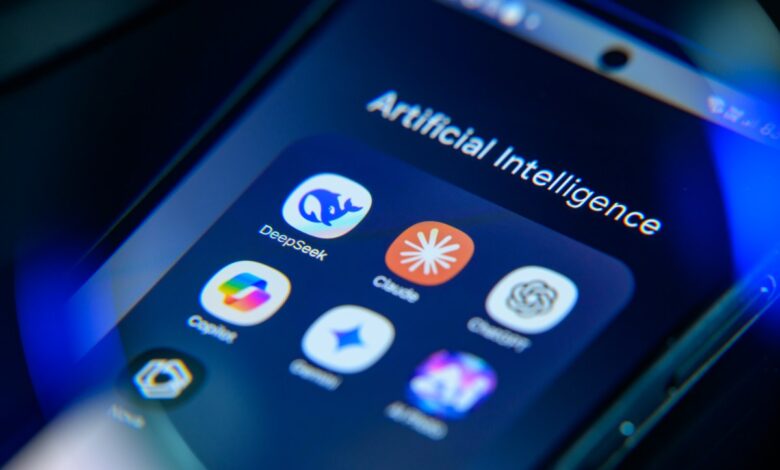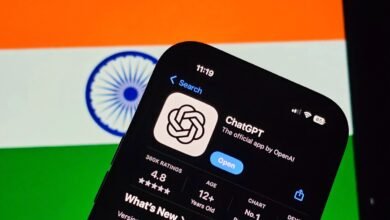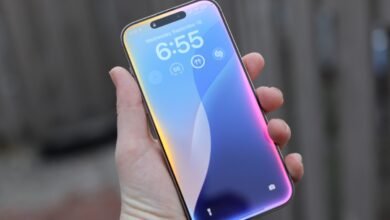a16z Report: Google and Grok Close Gap on ChatGPT in AI Race

▼ Summary
– ChatGPT rivals like Google’s Gemini, xAI’s Grok, and Meta AI are narrowing the gap to ChatGPT, according to a new Andreessen Horowitz report on consumer AI trends.
– Google gained four spots on the top generative AI web products list with Gemini, AI Studio, NotebookLM, and Google Labs, now tracked separately due to their own domains.
– Gemini ranks second to ChatGPT in both mobile and web usage, with nearly half the monthly active users on mobile and about 12% of ChatGPT’s web visits.
– Grok showed rapid growth, climbing to fourth on the web and 23rd on mobile, with over 20 million monthly active users after its standalone app launch and Grok 4 release.
– Chinese AI products, such as Quark, Doubao, and Kimi, feature prominently in the top web rankings, with most traffic originating from China, while several Chinese-developed apps also rank globally on mobile.
The competitive landscape for AI chatbots is shifting rapidly, with Google’s Gemini and xAI’s Grok making significant strides toward challenging ChatGPT’s dominance. According to the latest consumer AI report from Andreessen Horowitz, these platforms are steadily closing the gap, reflecting broader changes in how people engage with artificial intelligence tools.
Now in its fifth edition, the report draws on two and a half years of data tracking consumer adoption and usage patterns. For the fifth consecutive time, the same 14 companies appear among the top AI products: ChatGPT, Perplexity, Poe, Character AI, Midjourney, Leonardo, Veed, Cutout, ElevenLabs, Photoroom, Gamma, QuillBot, Civitai, and Hugging Face. These platforms represent a wide spectrum of AI applications, from general assistance and companionship to image editing, voice generation, and model hosting.
Another five companies have appeared in every report except the first, including Claude, DeepAI, Janitor AI, Pixelcut, and Suno, illustrating sustained user interest in AI companionship, creative tools, and music generation.
A notable shift in this edition is Google’s expanded presence, with four of its products, Gemini, AI Studio, NotebookLM, and Google Labs, earning spots on the list of top generative AI consumer web products. Each now operates under its own domain, enabling more precise tracking of individual growth metrics.
The report relies on third-party data from firms like Similarweb for web traffic and Sensor Tower for mobile app analytics. On mobile devices, Gemini holds the number two spot behind ChatGPT, though it has nearly half the monthly active users. Unsurprisingly, Gemini sees stronger adoption on Android, where it captures nearly 90% of its user base. On the web, it also ranks second, attracting roughly 12% of ChatGPT’s total visits.
Google’s AI Studio, a developer sandbox for building with Gemini models, entered the top ten AI web products at number ten, while NotebookLM landed at number thirteen. Google Labs, home to experimental projects like Flow and Project Mariner, ranked thirty-ninth.
Meta AI and Grok are also gaining momentum in the race. Grok ranked fourth on the web and twenty-third on mobile, a remarkable climb considering it launched without a standalone app in late 2024. By July 2025, monthly active users surpassed 20 million, with a nearly 40% surge following the release of Grok 4.
Meta’s general assistant held steady at forty-sixth on the web but did not break into the top mobile AI apps, partly due to controversy over user consent and data sharing practices.
Meanwhile, DeepSeek and Claude experienced flattened growth on mobile, with DeepSeek falling 22% from its peak. On the web, DeepSeek’s decline was even sharper, dropping over 40% since February 2025. In contrast, Perplexity and Claude continued to expand.
Chinese AI developers also made a strong showing, with Quark (Alibaba’s assistant), Doubao (ByteDance’s LLM product), and Kimi (Moonshot AI’s chatbot) all ranking in the web top twenty. Each receives about 75% of its traffic from China. Seven other China-developed but globally exported AI tools, including DeepSeek, Hailuo, and Monica, also made the list.
On mobile, 22 of the top 50 AI apps originated in China, though only three are primarily used there. Leading Chinese mobile apps include Meitu’s suite of photo editors, ByteDance’s Doubao and Cici, Gauth, and Hypic.
This report also welcomed newcomers Lovable and Replit, which debuted on the main list after missing the cut in March. Both platforms benefited from aggregated traffic through their default domains, replit.app and lovable.app, helping them gain visibility.
Andreessen Horowitz highlighted several apps on the cusp of breaking into the rankings, including PixAI, Bolt, and Blackbox AI on the web, and Talkie, Seekee, and Arvin on mobile. The mobile list now features 14 newcomers, more than in previous reports, as app stores have cracked down on ChatGPT clones, creating space for more original applications to emerge.
(Source: TechCrunch)





